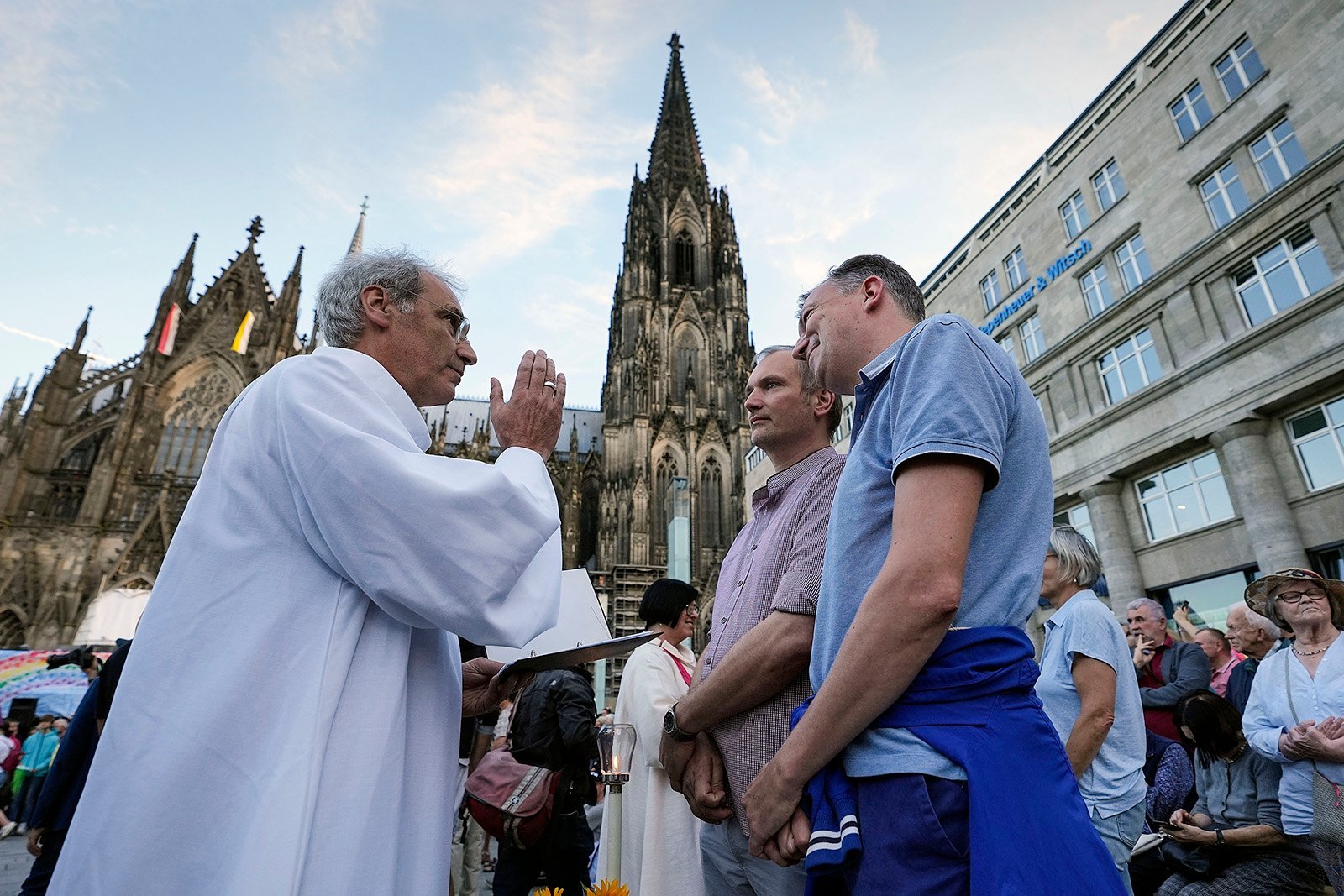VATICAN CITY (RNS) — In an unprecedented opening by the Catholic Church toward welcoming LGBTQ people, the Vatican’s Dicastery of the Doctrine of the Faith approved the blessing of same-sex couples on Monday (Dec. 18) in a document titled “Fiducia Supplicans,” or “Requesting Trust.”
Pope Francis approved the document, formally called a declaration — a term that signals that its contents carry doctrinal importance and were written in consultation with experts and theologians. But the document, like many of Francis’ pronouncements on topics where doctrine clashes with culture war issues, hedges its seemingly progressive leap forward with assurances that nothing has really changed.
What’s clear is that gay couples, but also those living outside of the traditional understanding of marriage in the Catholic faith — “couples in irregular situations” — can now be blessed by a priest. But there are a few caveats. Here are some main takeaways from the historic document:
Doctrine on marriage and on homosexuality has not changed
The declaration states at several points that the blessing of irregular or same sex-couples does not constitute a wedding and that it does not “legitimize anything.” Any prayers that could create confusion on that score, it says, “are inadmissible.” The point of the blessing, the document states, is to invoke the Holy Spirit to intercede in helping individuals live more faithfully and in grace, and not to approve the union itself.
It also reaffirms that marriage is the “exclusive, stable, and indissoluble union between a man and a woman, naturally open to the generation of children,” and only in marriage do “sexual relations find their natural, proper, and fully human meaning. The Church’s doctrine on this point remains firm.”
Same-sex blessings must not be ritualized
To avoid confusion among the faithful, the Vatican’s doctrinal department stated that the blessings should be performed “spontaneously” and not from the Book of Blessings, a collection of liturgical prayers for various occasions and people, especially for events centered on parish life.
Nor can there be set prayers established for the purpose of these blessings. They “should not be fixed ritually by ecclesial authorities to avoid producing confusion with the blessing proper to the Sacrament of Marriage,” the document reads.
“In a brief prayer preceding this spontaneous blessing, the ordained minister could ask that the individuals have peace, health, a spirit of patience, dialogue, and mutual assistance — but also God’s light and strength to be able to fulfill his will completely,” the document reads.
Blessings are not to be part of a civil union
The blessing cannot be performed at the same time or in connection with a civil union, the document states. Instead, the document suggests that the blessing be conducted “in other contexts, such as a visit to a shrine, a meeting with a priest, a prayer recited in a group, or during a pilgrimage.”
Keep it simple
To ensure that the blessing does not take on the appearance of a sacrament, the blessings must not become a spectacle, the document cautions, “nor can it be performed with any clothing, gestures, or words that are proper to a wedding.”
Priest may not recruit couples for a blessing
While some priests might be yearning to impart this blessing on gay couples in their parish, the document states that the couples themselves must ask for it. “For this reason, one should neither provide for nor promote a ritual for the blessings of couples in an irregular situation,” the document states.
“At the same time, one should not prevent or prohibit the Church’s closeness to people in every situation in which they might seek God’s help through a simple blessing,” it added.

